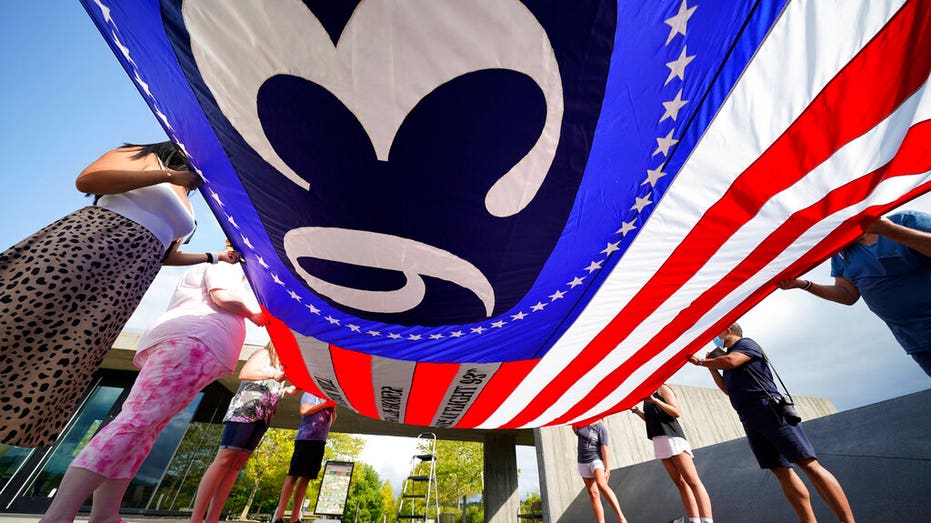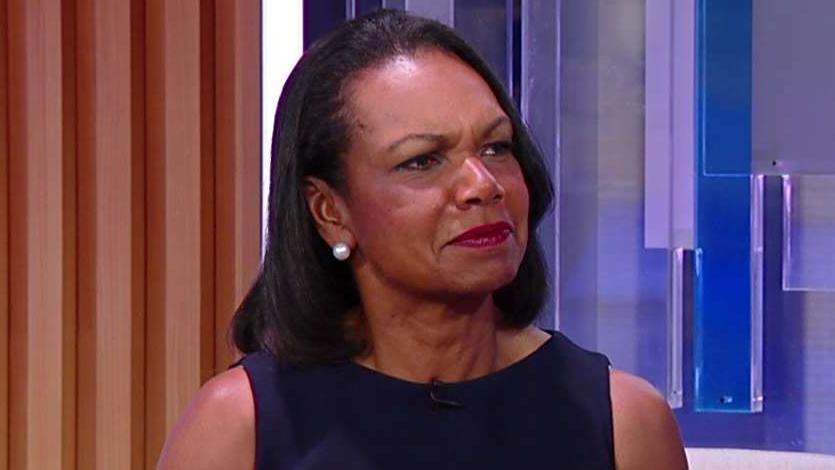Here's what 9/11 and now COVID-19, have taught us about leadership in a crisis
As devastating as 9/11 and the coronavirus pandemic have been, both events have raised the bar for leadership
Exactly 19 years ago, our nation was upturned by the horrific terrorist attacks of 9/11. The day led to nearly 3,000 deaths when two planes were flown into the World Trade Center in New York City, a third plane hit the Pentagon outside of Washington, D.C., and a fourth plane crashed into a field at Shanksville, Penn.

Visitors to the Flight 93 National Memorial in Shanksville, Pa., participate in a memorial service on Thursday, Sept. 10, 2020, as the nation prepares to mark the 19th anniversary of the Sept. 11, 2001, attacks. (AP Photo/Gene J. Puskar)
While this year’s coronavirus pandemic has brought endless changes to leadership; it has also caused many to reflect on the ways leadership was influenced by the tragic events of September 11, 2001.
AMERICAN EXPRESS EXTENDS WORK FROM HOME POLICY THROUGH JUNE 2021
Within the first months into the coronavirus pandemic, Stanley McChrystal and Chris Fussell, who both served the Joint Special Operations Command, wrote an op-ed for the New York Times called “What 9/11 Taught Us About Leadership in a Crisis.”
In the piece, they discuss leadership in the midst of a crisis. “Except this time, it’s facing the leadership of practically every organization in the world, from governments to Fortune 500 companies to the smallest nonprofit. They are now managing their teams through a crisis with no clear end in sight. Today’s leaders didn’t ask for this new role. But if history shows us one thing, it is that our greatest leaders emerge from the darkest moments.”
What McChrystal and Fussell witnessed in the wake of 9/11 was a shift in leadership within the U.S. Special Operations on every level.
Following that day’s events and the launch of the global War on Terror, the entire organization of the U.S. unified combatant command drastically changed how every group and leader operated. They prepared for countless changes that continued to shift how they led.
JPMORGAN TOP BRASS TELL TRADING-FLOOR STAFF TO COME BACK TO THE OFFICE
Years into the fight against Al Qaeda, both McChrystal and Fussell had to transition from an enterprise of thousands of centrally located troops to a system of smaller units scattered across the globe.
As devastating as 9/11 and the coronavirus pandemic have been, both events have raised the bar for leadership.
As our workplaces had to shift their daily routines and overall ways of life, leaders refined their focus to meet the demands of a changing world’s needs.
As devastating as 9/11 and the coronavirus pandemic have been, both events have raised the bar for leadership.
In several ways, the events of 9/11 and the coronavirus pandemic have shaped the new standard of leadership, and first is the need of responsiveness.
The rapid pace of both 9/11 and the pandemic has caused a shock for most of us, which can delay a timely response.
Adam Silver, the commissioner of the National Basketball Association (NBA), quickly acted. On March 11, when the World Health Organization officially designated COVID-19 a pandemic, Silver made the unexpected move of suspending the league for the entire season.
Leaders must be confident in what they value so when moments of uncertainty arise, they are certain of those things that matter most. Silver’s move was for the NBA players, the league and the game’s longevity.
Leaders are expected to respond proactively to protect what matters most, even when it means not always knowing what will happen next.
Leaders have also been stretched to learn to be flexible, even within the worst imaginable scenarios. Both 9/11 and the pandemic have come at the cost of countless lives and a ripple effect of living among constant threats.
Leaders are expected to respond proactively to protect what matters most, even when it means not always knowing what will happen next.
Many leaders have had to transition teams to work from home, including significant health precautions in their systems and continue to navigate the impacts of COVID-19.
When tensions, stress and anxiety soar, it can be the most challenging time to be flexible. But without flexibility, and the ability to move forward with a goal through the disruptions and uncertainty of each day, leaders lack the vital character of resiliency.
GET FOX BUSINESS ON THE GO BY CLICKING HERE
It’s easy to be resilient when calling the shots, but endless unpredictability can unhinge our focus. It is through such events that our resilience is most tested. Yet, to respond the way we need to, we must be flexible in stressful situations and stable in our focus and overall mission.
McChrystal and Fussell also wrote, “‘Digital leadership’ was not in the job description for our generation, but it became a critical skill for all of us to learn in the fast-moving and constantly changing fight.”
Although 9/11 and the current pandemic seem to call out new leadership standards, maybe crises do not so much shape a new leader as they more clearly reveal to us who a leader ought to be.
Now, navigating the pandemic, digital and technological literacy is essential. Whether it be video calls on Zoom or Google and managing calendars and deadlines outside of the office, leaders have had to gain confidence in leading through several online platforms.
Lastly, to lead with flexibility, remain emotionally in tune with our organizations and keep our company’s best interest first and foremost, a leader must be selfless.
Author and leadership guru Simon Sinek says a Marine Corps general once told him, “The cost of leadership is self-interest.” But if anything can strip us from self-focus to recognizing the importance of prioritizing others’ interests, it is a pandemic or tragic crisis.
When the coronavirus pandemic first hit, we assumed it would alter regular routines for two weeks. Little could we have predicted the endless ways this pandemic would change leadership roles, let alone our world.
Although 9/11 and the current pandemic seem to call out new leadership standards, maybe crises do not so much shape a new leader as they more clearly reveal to us who a leader ought to be.
While these two events have brought America some of her most difficult seasons, they have called leaders to remember their roles and allowed us to step up to the occasion.
Dr. Kent Ingle presently serves as the President of Southeastern University (SEU) located in Lakeland, Florida. Southeastern University can be found online at seu.edu and their prayer community can be found on pray.com.




















